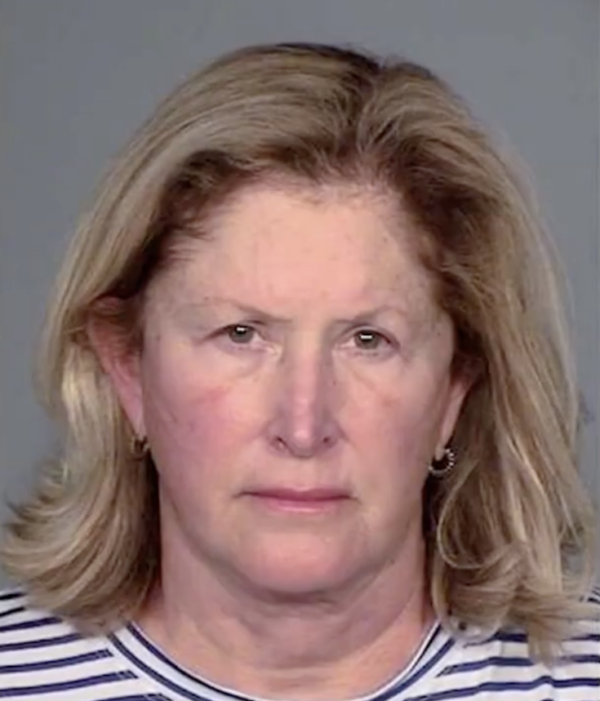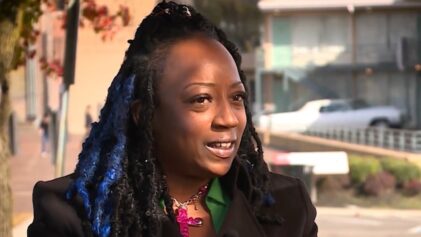An Arizona woman convicted for casting a ballot in her dead mother’s name will not face jail time, sparking debate over racial disparity in sentencing.
Tracey Kay McKee, a 64-year-old white Republican, was sentenced to two years probation and ordered to pay fines and do community service on Friday for voting in her mother’s name in Arizona’s November 2020 general election.
McKee’s mother died on Oct. 5, 2020.

A tearful McKee blamed her decision to perform the illegal act on grief and asked the judge for compassion on Friday. Even though prosecutors argued that McKee lied to investigators and should spend 30 days in jail, she was awarded the empathy that some said Black voters had not been afforded.
“Your Honor, I would like to apologize,” McKee told Maricopa County Superior Court Judge Margaret LaBianca. “I don’t want to make the excuse for my behavior. What I did was wrong and I’m prepared to accept the consequences handed down by the court.”
McKee has now become the face of Republican voter fraud, a paradox after the months-long effort by former President Donald Trump to uncover widespread fraud in the 2020 election.
Arizona’s Republican Party upheld the unfounded theory.
Arizona GOP Chairman Dr. Kelli Ward celebrated the thought of “perp walks and prosecutions” on April 6 when state Attorney General Mark Brnovich announced that investigators found “problematic system-wide issues” with Arizona’s early voting after a review of ballots. It turned out that Brnovich’s office uncovered nine voting fraud cases, including McKee and six incarcerated people.
McKee herself also believed there was rampant voter fraud. A clip of her interview captured during the investigation reveals the ironic twist that still wasn’t enough to persuade the judge.
“The only way to prevent voter fraud is to physically go in and punch a ballot,” McKee told the investigator. “I mean, voter fraud is going to be prevalent as long as there’s mail-in voting, for sure. I mean, there’s no way to ensure a fair election.
“And I don’t believe that this was a fair election,” she continued. “I do believe there was a lot of voter fraud.”
The news of McKee’s verdict has also made her model for an unbalanced scale in sentencing. Many on social media are comparing McKee to two Black women sentenced to years in prison because of voting fraud and making her the poster woman for “voting when white.”
“I’m not saying SHE should be in jail. I’m saying the Black people they almost die to arrest shouldn’t be in jail either,” wrote Twitter user Angela Brown-Vann.
Unlike McKee, who admitted wrongdoing, Pamela Moses and Crystal Mason said they voted illegally in error.
Moses, a Black Matter activist, was sentenced to six years and a day in prison in January for trying to register to vote in 2019.
Moses, who has prior felony convictions, was told her right to vote had been restored by Tennessee officials.
A Memphis judge said Moses “tricked” probation officials and had “nothing but contempt for the law and acts as though she believes herself above the law.” But, later emails uncovered by The Guardian revealed that a probation officer admitted to erroneously giving Moses the nod to register to vote.
While Moses was cleared of the charges late last month, Crystal Mason, a Black woman in Texas, is appealing a five-year sentence she was given for illegally casting a provisional ballot despite also insisting that she did not know she was ineligible to vote while on probation in 2016.
“The system isn’t broken—it’s working as intended,” wrote Human Rights lawyer Qasim Rashid comparing Mason’s and McKee’s cases on Twitter.
State laws determine criminal penalties, sentencing guidelines and judicial discretion, and they differ by state. Previous criminal convictions can also impact sentencing.
McKee’s defense attorney argued on Friday that no one in Arizona had ever served time for voter fraud.
Among the recent convictions in the state was Joseph John Marak, who pleaded guilty to voter fraud in March. Marak was convicted on 18 felony charges in 2011 and spent six years in prison. He admitted to illegally voting in six federal elections since 2016 and was sentenced to 30 months probation and fined.
Chad Armstrong, a white Wisconsin man, was still on probation when he voted in the 2018 election. He was sentenced to five days in jail after pleading down from a felony to a misdemeanor. Another white man Glen Tank lost his right to vote in 2016 but said he thought it was restored when he registered to vote in Iowa in 2012. He accepted a plea deal in 2016 and was subjected to a fine.
However, in Texas, Hervis Rogers could face up to 40 years in prison for voting in the 2020 general election while on parole. Democrats have linked Rogers’ case to another systemic issue, voter suppression.
“The unwarranted criminalization of Hervis Rogers’ error is a grave miscarriage of justice. By casting his ballot in the 2020 primary, Hervis Rogers was simply attempting to fulfill his civic duty. Now he is potentially facing decades in prison,” a coalition of Democratic attorneys general said in a July statement.
“This prosecution is a clear attempt to intimidate voters, deter participation, and stoke fears of fictitious voter fraud.”


